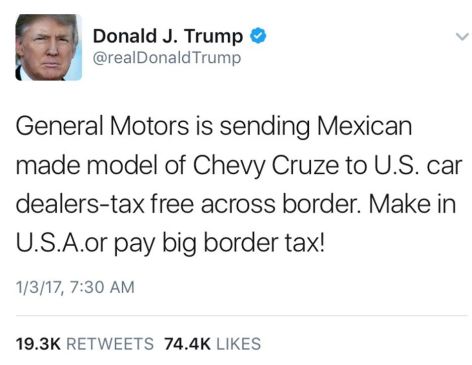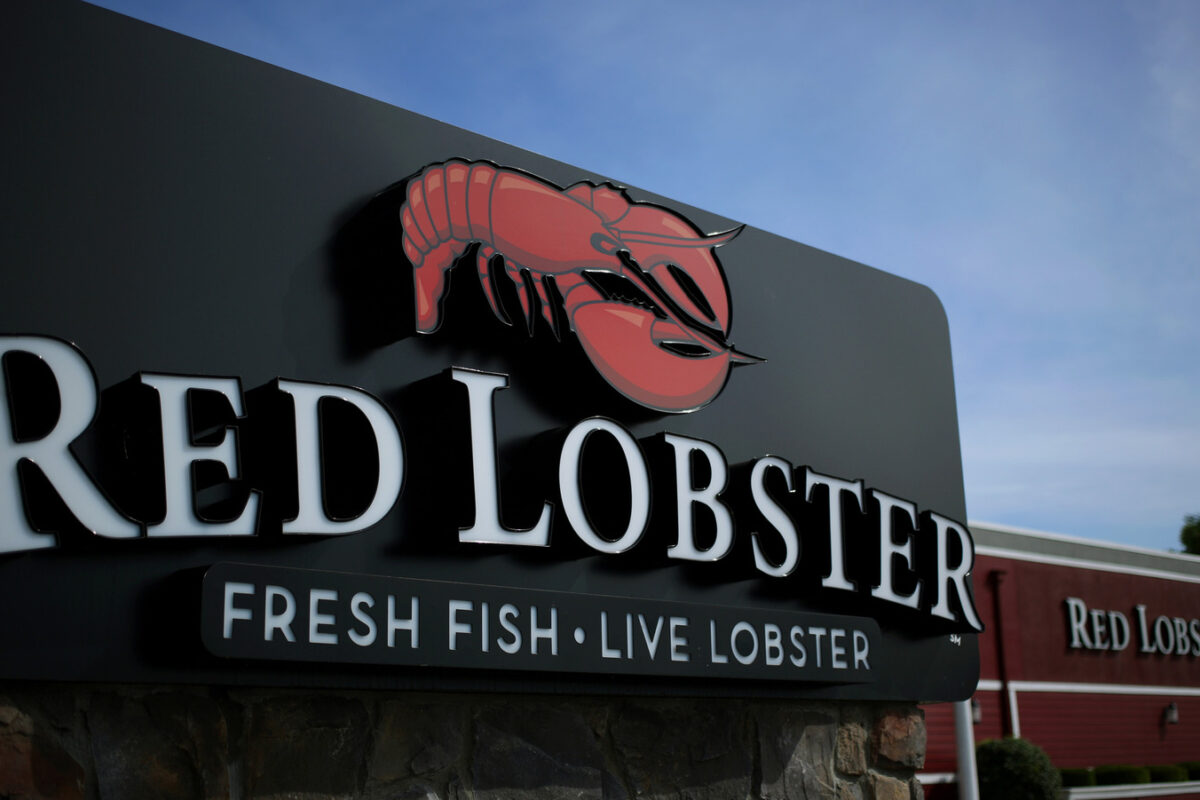One of the more interesting developments that emerged during these past few months is the phenomena of brands facing direct criticism from then President-elect Donald Trump.

The frequency and unpredictability of these criticisms has put brands on notice. From questioning the decision to move manufacturing to Mexico, as in the case of Carrier or Ford, or of the estimated cost of Air Force One, as with Boeing. Any brand facing criticism from the new president, along with enduring the accompanying media coverage subjects brands to deep and potentially threatening scrutiny. Like many things associated with the recent election, this is totally new in the political/marketing universe. For the first time, a soon to be sitting president was using his position to publicly chastise a company and brand by name.
Though there is no direct precedent it should be noted that presidents have never been totally silent in matters that effect marketing and commerce. For example in 1952, Harry Truman attempted a seizure of the steel industry in the face of a strike. Ten years later, President Kennedy was at odds publicly with the steel industry over pricing. In 1981, Ronald Reagan fired 11,000 striking air traffic controllers for refusing to return to work. In 2009, President Obama attempted to re-invent the healthcare industry with the Affordable Care Act and jump-start the entire green industry in the U.S. In each of these cases, the power of the presidency was brought to bear to settle an issue in the marketplace, or in the case of Obama, rebuild or reinvigorate a marketplace. But in these examples and others, brands weren’t singled out as they are now. Had Twitter been around in 1962, would Kennedy have called out U.S. Steel directly for price gouging? We’ll never know.
What we do know is the power of social media (in this case Twitter) wielded directly and personally by a President on a mission to “make America great again” has been quite effective. United Technologies (Carrier), Boeing, Lockheed Martin, Ford, GM, Fiat Chrysler and Toyota, have all had their turn. The news media amplifies the message beyond the President’s 20.3 million followers and CEOs squirm. In every case a negative tweet from @realDonaldTrump has delivered a blow to the brand in stock valuation loss. Stanley is one company that seems to be getting the message. This from their CEO John Lundgren: “It’s going to be advisable to have more manufacturing in the U.S.” Our observation: If your brand is on the Fortune 500, rightly or wrongly your brand could be next.
That is why, in assessing your brand’s potential threats as part of a SWOT analysis or other situation analysis, you consider heightened public scrutiny for your business plans and policies as part of that matrix. A Wall Street Journal op-ed recently complained that the new president should allow CEO’s to chart the destiny of the businesses that they know better. While that may be true, the new reality may very well become the new normal for high-profile brands. It is, in fact, a new crisis management scenario that these brands must prepare for.
While the combination of presidential administration scrutiny, public criticism and direct threats are a unique development for high-profile brands, threats in the marketplace are not. Essentially, the tweets from @realDonaldTrump can call into question the trustworthiness of the brand to have the country’s best interests at heart. This is much like a consumer group questioning product safety claims or a company’s environmental policy being deemed “green wash.” The difference is, of course, it’s coming from the “highest office in the land” and by virtue of that, it’s news that is capable of threatening the trust consumers have with your brand.
The trust issue at the top of this list of brand threats and how to counter them where Mark DiSomma points out: “… the range of behaviors that consumers find unacceptable has broadened to include not just misleading messaging but also the gamut of wider business and ethical issues.” I would add it is the “wider business issues” (relocating manufacturing outside the U.S. or bids that are perceived to be high) and “ethical issues” (the resulting job loss among the brand’s own consumers or unreasonable profits) that a targeted Trump-tweet raises on the basis of trust—or lack there of. Damage control from crisis management techniques aside, how do brands counter this potential threat without necessarily acquiescing, as in the case of Stanley or others?
Our advice? If things are happening that you wouldn’t want people to know about, beyond commercial sensitivity, that’s a trust issue waiting to happen. Address it, before buyers address you about it and certainly before the President tweets about it.
That’s because when the brand’s trust is impugned by raising “business and ethical issues,” the brand’s reputation can suffer long lasting damage as real as its temporary stock value drop. A study by the Wirthlin Group concludes just how important your brand reputation is:
- “Companies with good reputations are 7 times more likely to command premium prices for their products and services,
- 5 times more likely to have their stock recommended,
- 4 times more likely to be recommended as a good place to work,
- 3 times more likely to be recommended as a joint venture partner, and
- 1.5 times more likely to receive the benefit of the doubt.”
Threats to your brand will emerge. It’s inevitable. Some you can anticipate and some you can’t. The best way to handle being the target of a disparaging tweet, presidential or otherwise, is to have a plan on how you will take a stand, be transparent, and trustworthy.
The Blake Project Can Help: Accelerate Brand Growth Through Powerful Emotional Connections
Branding Strategy Insider is a service of The Blake Project: A strategic brand consultancy specializing in Brand Research, Brand Strategy, Brand Licensing and Brand Education





One comment
Wayne
January 21, 2017 at 2:21 pm
Interesting question and some most valid points. But these are most unusual and unprecedented circumstances. I don’t believe Trump criticism can or will damage a companies reputation for the majority of Americans. In some cases it may even improve their rep – it definitely will internationally.
Past Presidents have called for desperate measures, typically in desperate times, so most, with the exception of Reagan perhaps, were taken in stride as necessary. Comparing Trumps tweets to Obama’s healthcare initiative is the most extreme example. To put it in perspective, at about 40%, Trump has the lowest approval rating of any incoming President in our lifetime. Most people give no respect to his comments, particularly when he makes foreign trade claims with push/pull factors that are far beyond his scope of understanding. Obama on the other hand came in with a 79% approval with the plan to match the rest of the civilized world with a health plan that covers everyone regardless of income bracket. Resistance to that defies human decency and any failure of a plan that has overwhelmingly succeeded everywhere else in the world can only come from corrupt implementation. I don’t see much to compare on that one.
Comments are closed.